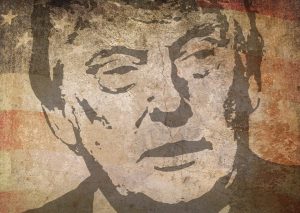
As the left-leaning media keeps saying, ‘it has really happened’; last Friday Donald Trump was inaugurated as the 45th president of the United States. How does it feel? I believe the best word to describe the current state, both in the US and around the world, is uncertainty… it feels uncertain. First there was Brexit, now there is Trump, and populist and protectionist tendencies are spreading across Europe. This feeling of uncertainty also seems to have been prominent during the recent World Economic Forum in Davos, where global leaders ‘struggled to respond to the global populism movement’. As published in the NY Times, this moment of uncertainty was well used by the Chinese leader, who made a case towards defending economic globalization, and portrayed China as the champion of globalization that others can rely on. At the same time, pushing back on the perceived globalization backlash, Anthony Scaramucci, Trump’s newly appointed public liaison official, told Davos that Trump is committed to globalization, and that ‘Trump could be one of the last great hopes for globalism’. Whether this message can be believed is yet another uncertainty.
Yet, amid all the questions concerning the future, what is perfectly clear is that we have stepped into an era of protectionism and populism. As discussed in one of my older posts, globalization is being attacked as never before. And while most leaders in Davos agreed that globalization was generally beneficial, almost everyone called for ‘a reform to globalization’ as well. Thus the way globalization has unfolded seems to have failed, and this is evident now that public anger has given impetus to Brexit, Trump, Marine Le Pen and others.
What explains this phenomenon?
A widely used explanation links the rise of populism to economic difficulties and inequality. Although globalization supporters have a strong case for claiming the many benefits of globalization, one should probably admit that it has not benefited and worked for all. For example, there is collateral damage for manufacturing-dependent communities, which came along with technological advancement and changes in global flows of labor, goods and capital. That is indeed what Trump is constantly emphasizing with his rhetoric of a ‘predatory’ China and ‘rusted out factories scattered like tombstones across the landscape’ of the US. Low-wage, unskilled workers in particular might have felt left behind with the influx of migrants and refugees, and decreasing social benefits. Naturally these feelings might be well supported by such protectionist claims as Trump’s assertion about ‘Mexicans taking our jobs and money’. In other words, even though at large globalization has generated wealth, the average Joe from an inner city hasn’t necessarily felt that. Instead he has lost his manufacturing job – which is when protectionist rhetoric about keeping immigrants out and stopping free trade is appealing.
Another interesting perspective about the causes of populism comes from Harvard Kennedy School faculty research by Inglehart and Norris. The scholars argue that apart from economic have-nots, the rise of populism is also a result of cultural backlash. What they speak about are rapid cultural changes that have been occurring in advanced industrial societies: a rising emphasis on environmental protection, multiculturalism, gender and racial equality, acceptance of the LGBT community and so forth. These changes are drastically contrary to traditional values, and hence most uncomfortable for those who hold traditional values, particularly older and less-educated people, as the research states. The authors explain the backlash against progressive values by resistance to change and a loss of privileges: ‘sectors once culturally predominant in Western Europe may react angrily to the erosion of their privileges and status’.
In my point of view this is an interesting and important social psychological phenomenon, which explains well the currently visible hostile attitudes towards migrants, rising nationalism, and uncertainties about the future of women rights and rights of different minorities. In essence, if the current socio-political turmoil indeed stems from the gap between traditional and progressive values, then no economic improvement, or the reinstatement of manufacturing jobs Trump is so passionately arguing for, will help to address it. As the authors put it, ‘If the cultural backlash argument is essentially correct, then this has significant implications; the growing generational gap in Western societies is likely to heighten the salience of the cultural cleavage in party politics in future, irrespective of any improvements in the underlying economic conditions or any potential slowdown in globalization’.


Great breakdown even tho I stumbled upon it quite late, enjoyed it!